|
At 9:00 a.m., a Celtic spirit informs the musical offerings for our early morning worship service. Violinist Harmony Tucker joins us for songs of cheer and haunting beauty.
At 11:00 a.m., the organ speaks in the spirit of the Baroque era with two 16th century hymn tune settings. At the Prelude, 20th century "Neo-Baroque" composer Helmut Walcha offers a delightfully eccentric reading of the Epiphany hymn "How Brightly Shines the Morning Star." At the Postlude, we go to "the source" with Johann Sebastian Bach's energetic and joyful chorale prelude on the new year carol "In Thee Is Gladness." Lastly, at the Offertory, the Chancel Choir sings the celebratory traditional Caribbean tune "Halle, Halle, Halle" arranged by Hal Hopson with unofficial resident djembist Rev. Hal Chorpenning and other aspiring percussionists.
0 Comments
 Image by Sven Lachmann from Pixabay Image by Sven Lachmann from Pixabay Off into the Baroque on a path less traveled by. A pastorale is a music form intended to convey nature—the pastures of shepherds and their flock. Though often associated with the Christmas season, we hear at the Prelude a sectional work in this style by Italian composer Domenico Zipoli (1688-1726.) Zipoli interestingly became a Jesuit missionary who spent his final years teaching and composing among the Guarani people in Peru. The Musical Offering brings us to the French Baroque with the dance-like "Gavotte" by Jean-Philippe Rameau (1683-1764). A leading music theorist and composer for opera and harpsichord, this fanciful work for violin and keyboard is an excerpt from his 1745 opera-ballet, "Le Temple de la Gloire" (The Temple of Glory). Violinist Harmony Tucker joins. Sending us out into the world is a Postlude technically not from the 18th century but composed in that idiom with faithful accuracy. Based on the German Easter hymn "Erschienen ist der herrlich Tag" (Appeared is the Splendid Day), this 19th century setting by Austrian composer Heinrich von Herzogenberg (1843-1900) employs common Baroque compositional techniques such as canon, imitation, and the use of the cantus firmus (i.e. the hymn tune) in the pedal. As a devotee and champion of J.S. Bach's music, the Master's influence is easily felt throughout this chorale prelude. At the 6:00 p.m. service, bassist Peter Strening and cantor Blair Carpenter lead songs of the Good Shepherd and offer sounds of jazz and an inadvertent song of the Easter season by the band Coldplay. 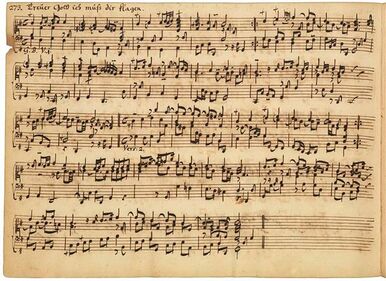 By Georg Böhm - [1], Public Domain, https://commons.wikimedia.org/w/index.php?curid=55268921 By Georg Böhm - [1], Public Domain, https://commons.wikimedia.org/w/index.php?curid=55268921 We welcome the Advent season with variations on "Freu dich sehr, o meine Seele" (Rejoice greatly, O my soul) by Baroque composer Georg Bõhm. This tune from the 1551 Genevan Psalter is most associated with the Advent text by 18th century hymn writer Johannes Olearius, "Comfort, Comfort Ye My People." A gentle reprieve is offered at service midpoint by violinist Harmony Tucker in the "Adagio" from G.F. Handel's "Violin Sonata in F Major, HWV 370." For Vespers this December 2, a service of Advent hymn and carols in the folk tradition with guitarist Bill Demarco. Two famous cousins from the Baroque era frame the morning services with chorale preludes based on two well-known hymn tunes.
Johann Sebastian Bach (1685-1750) composed several settings of "Liebster Jesu, wir sind hier" (Dearest Jesus, we are here). This week, we hear BWV 731, the ornamented four-voice chorale setting with soprano played with the right hand, alto and tenor in the left, and bass in the pedal. The Johann Gottfried Walther (1684-1748) setting of "Lobe den Herren, den mächtigen" (Praise to the Lord, the Almighty) also utilizes four voices but in a quasi-fugal style. Fragments of the hymn tune become the unifying motive throughout the brief chorale prelude.with large reeds in the pedal exclaiming the jubilant melody in its entirety. During the 9:00 a.m. communion service, a setting of the 13th century Eucharistic hymn by Thomas Aquinas, "Adoro te devote" (I devoutly adore you), will be offered by 20th century British-Canadian composer Healey Willan. At 11:00 a.m., the Chancel Choir sings the evocative anthem "I Believe" by composer Mark Miller. The text is based on an anonymous poem found written on a cellar wall in Cologne, where jewish citizens purportedly spent years in hiding from the Nazis during World War II. The paraphrased text reads: "I believe in the sun, even when it's not shining. I believe in love, even when I don't feel it. I believe in God, even when God is silent." May these words of faith, hope, and comfort empower us in these difficult days as well. At 6:00 p.m., Bobby and Blair are joined by resident Plymouth ukulele guru Stuart Yoshida, bassist Peter Strening and steel guitarist Chris Kennison for an eclectic selection of spiritual and sacred songs featuring a taste of the "Sacred Steel" tradition. Come and experience this unconventional service of evening prayer and unique sounds! The final composer in this month's Advent Baroque composer series will be Jean-Adam Guilain (c. 1680 -1739). Guilain was born in Germany but spent the majority of his life in France. Not much is known of him but his surviving musical output demonstrates an embracement of the French Classique tradition over the North German organ composition ethos. This Sunday morning, we'll hear excerpts from his singular collection of organ works entitled Pièces d'orgue pour le Magnificat sur les huit tons différents de l'église published in 1706. Each of the eight suites is based on the Gregorian Chant melody of the Magnificat in all eight church modes. The suites were intended to be sung in alternation with the chanted verses of the Magnificat and will be treated as such this Sunday morning with cantor Blair Carpenter, utilizing tone two.
Two other Marian works will be represented this Sunday morning as well. At 9:00 a.m., Blair Carpenter will sing Hugo Wolf's art song Nun, wandre Maria during the communion time. At the 11:00 a.m.service, the Chancel Choir will offer Ave, Ave, the Angel Sang, by prolific contemporary composer Robert Lau. For each Sunday in the remainder of Advent, the seasonal chorale-based output of a Baroque composer will be focused upon from the organ.
This week, it will be German composer Georg Böhm (1661-1733). He is known as the father of the chorale partita, a composition which offers a succession of creative variations on a chorale tune. Excerpts from Freu dich sehr, o meine Seele (Rejoice greatly, O my soul) will be heard at the morning prelude and postlude and during the 9:00 a.m. service communion. The chorale melody is known to us as the Advent hymn Comfort, Comfort O My People, a tune compiled in the 16th century Genevan Psalter. The Chancel Choir will offer Felix Mendelssohn's How Lovely are the Messengers from the 1836 oratorio St. Paul. A paraphrase of Romans 10.15 & 18, the chorus praises the harbingers of peace on earth and the coming new kingdom of God on earth. At 6:00 p.m., Bobby, cantor Blair Carpenter, and bassist Peter Strening will lead us in song as we continue our Advent journey. |
Details
|
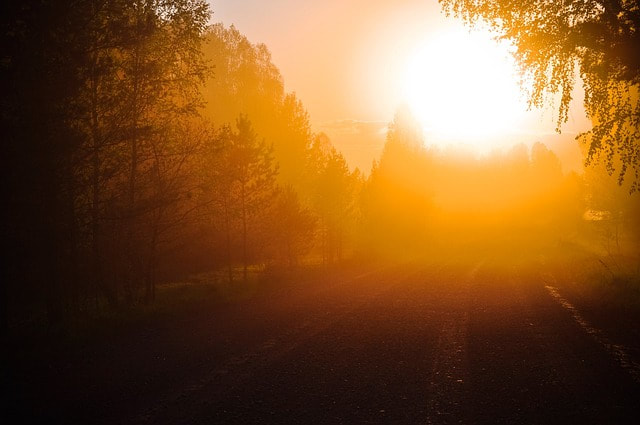
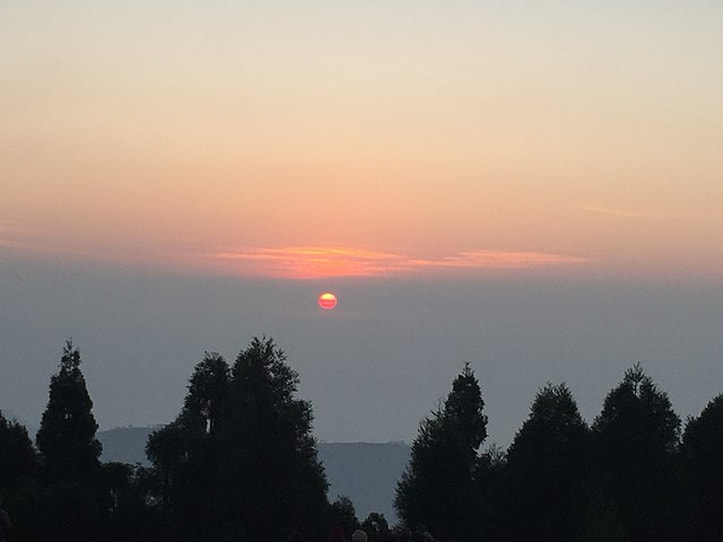
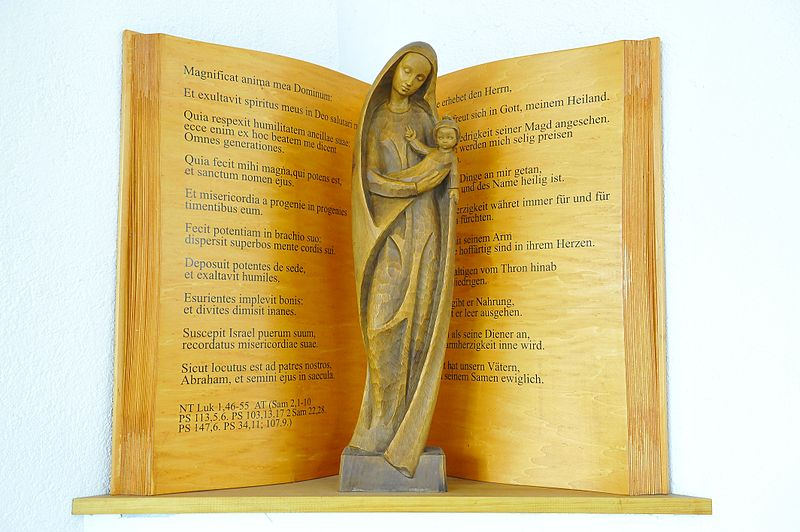
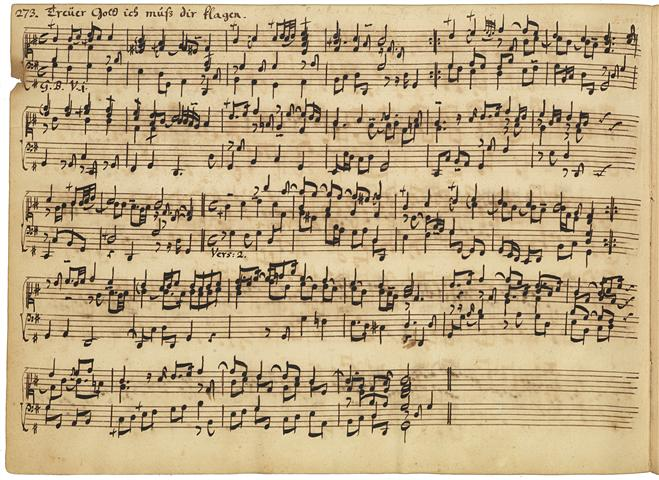

 RSS Feed
RSS Feed